
True or false : are candles vegan?
Short answer; it depends.
These days wonderful vegan candles are widely available, however traditionally, candles were far from vegan friendly.
Historically candles were mostly made from beeswax and tallow. Tallow was most commonly made using rendered animal fat from sheep and cows and was often the main ingredient in early candle production.
Different countries and cultures used different wax ingredients for their candles from spermaceti, made from a substance found in the head cavities of whales, and stearin, which can be made from purified animal fats to Yak butter and even a particular species of Alaskan fish.
These were just some of the ingredients found in ancient candle making practices. More recently, following the introduction of oil refineries during the industrial revolution, paraffin was found to be a cheaper and more versatile wax to make mass produced candles.
This is a by-product of refining crude oil and is made from petroleum. Additives such as stearin were sometimes still mixed with paraffin wax to make the candles harder and burn better.
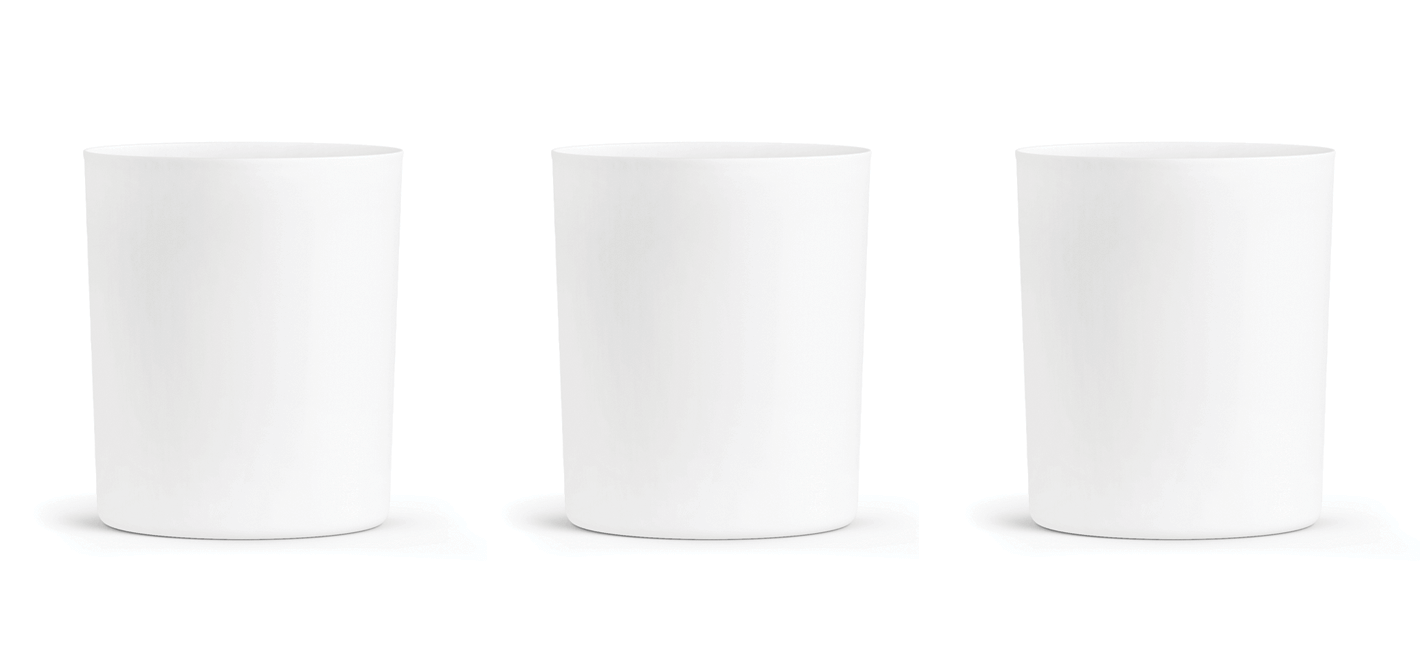
Candles made from pure animal-based types of wax gave off unpleasant odours, burned erratically and were labour intensive to make. Paraffin by comparison was cheap to use, burned more consistently, held scent well and smoked less.
However, this type of wax is far from sustainable as it is a product of fossil fuel harvesting and, depending on the materials mixed with the wax, may give off chemicals that have the potential to cause harm.
What is Veganism?
With approximately 1-3% of the world’s population now following a vegan lifestyle, there is more demand for plant-based products in our day to day lives than ever before.
Veganism is not just a dietary change for some, but a lifestyle choice, where some followers of this practice shun any items that contain or are made using animal products.
The choice to become vegan, for some people, can be an environmental one, for others it may be about animal welfare or a desire to eat a ‘cleaner’ diet which contains less chemicals, additives and processed foods.
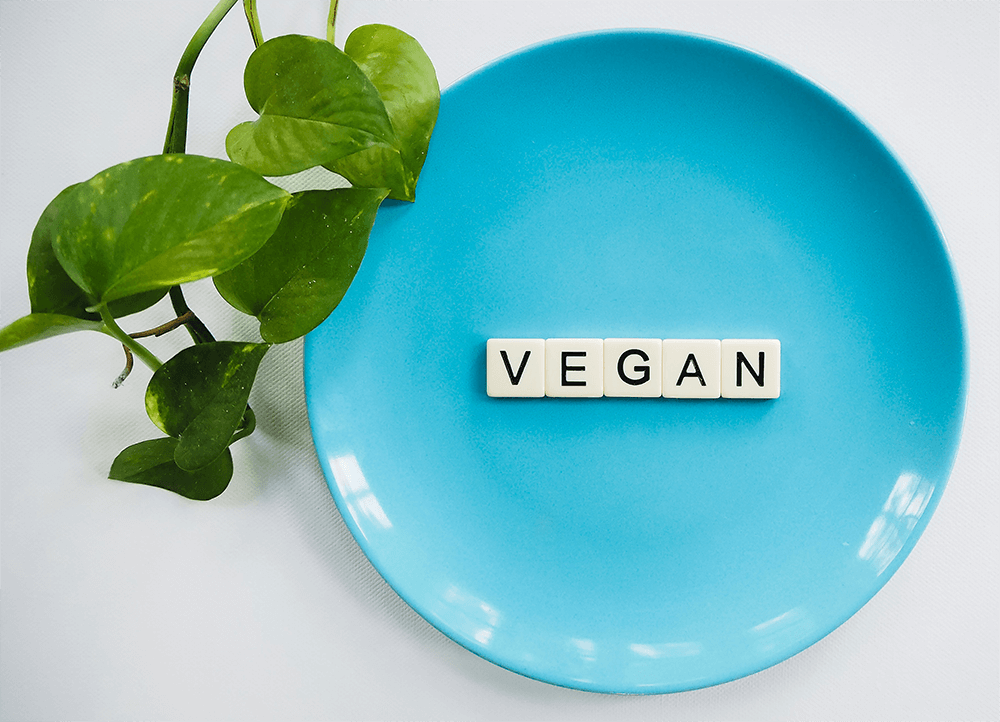
Whatever the motivation, an understanding of where our products come from, what they’re made of and how they’re made means the choices we make about what we consume are more informed and knowledge based.
Vegan Candle Wax
In a world where more people are asking where their consumables come from, demanding more sustainable alternatives and wanting to make more responsible choices, it’s no wonder that the candle industry has stepped up to offer options free from animal products and made using entirely natural ingredients.
Vegan candles do not have any animal-derived products contained within them and this includes the container, label, the wax used and the chosen wick material. We’ve put together a list of some of the best vegan candle waxes available and their properties.
Soy Candle Wax
Soy candle wax is made from soya beans or soybean or soy beans, they are all the same. Soya beans are a legume, also known as edamame in Japanese cooking, and are a high yield and profitable crop for growers.
Soy wax is made from hydrogenated oil extracted from the soya beans. It has a lower melting point that other waxes as it is softer and is most suited to container candles.
To make soy wax candles without a container, additives are sometimes blended in to harden the wax.
Soy is one of the most popular vegan candle waxes due to it’s clean scents & it’s sustainable properties. Always check the labels of soy candles to ensure that they are vegan.
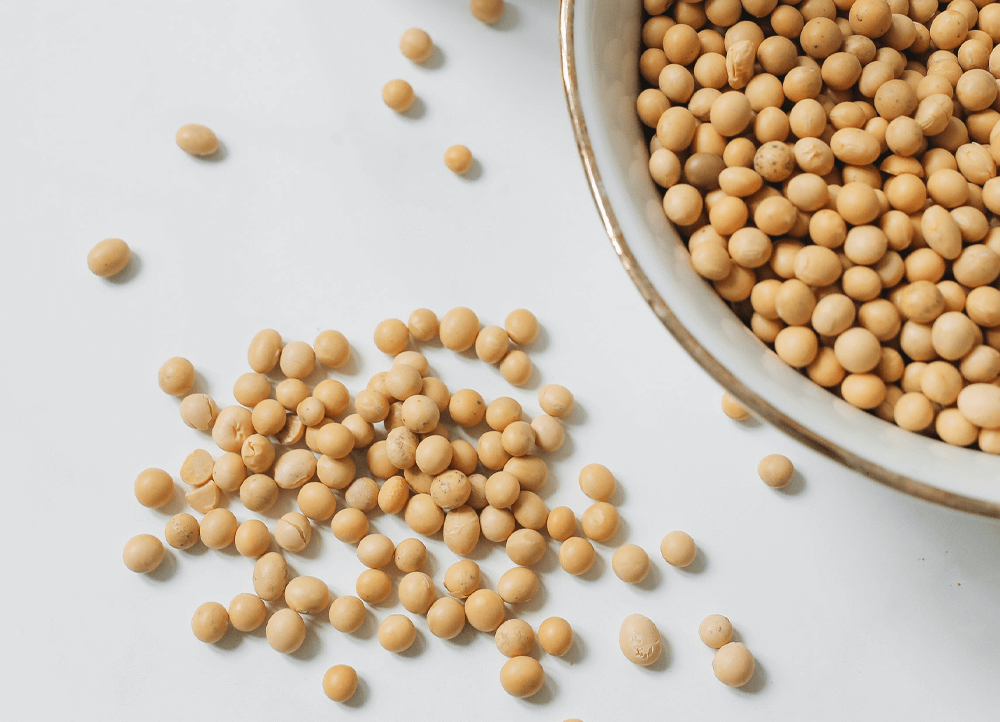
Carnauba Wax
Carnauba wax is made from a Brazilian palm which is derived from the oil of the palm fruit. Like soy candle wax, this wax is 100% natural, however it has a higher melting point and makes a hard wax.
It is a vegan wax and uses no animal derivatives or additives when used in its pure form. Similarly to soy wax, there are sustainability questions surrounding palm oil and the amount of forests cleared to make plantations.
Check your candle labels to make sure that the palm wax is from responsible sources if you’re concerned about the impact of your product on the environment.
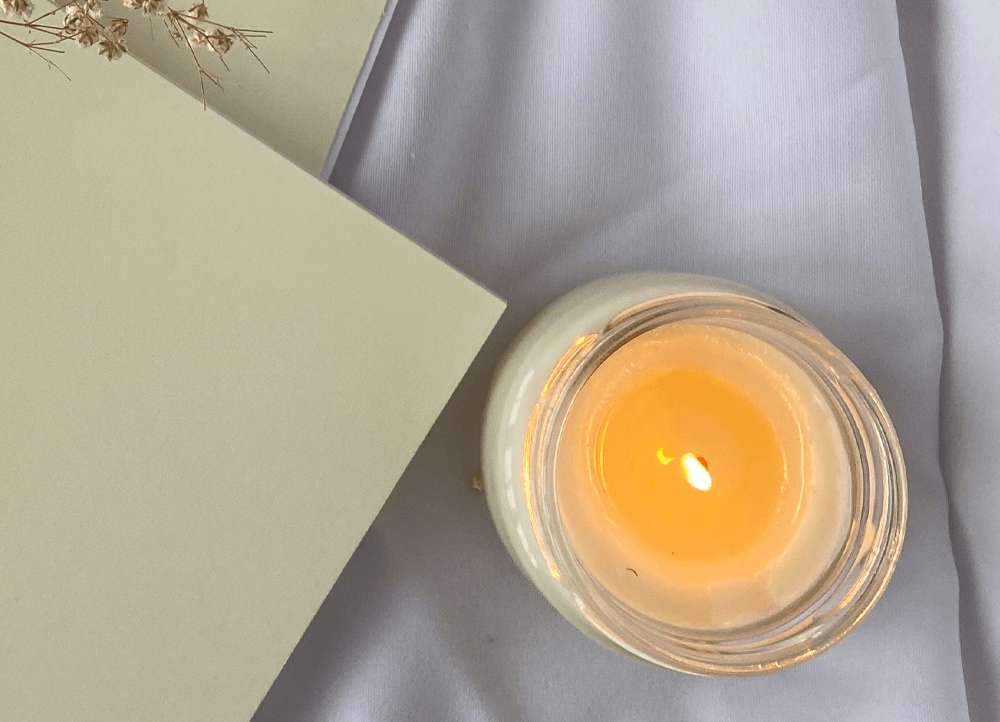
Coconut Wax
Like soy and palm wax, coconut wax is another plant-based wax derived from the oil of coconuts. This is another soft, 100% natural wax and it is vegan friendly in its pure form.
Coconut wax can be expensive to buy and as such is often mixed with other waxes to make blended candles.
Coconut wax holds scent better than other natural waxes and has a delicate and fragrant natural scent when used pure. It is biodegradable as it is a natural product, and it has a more consistent burn than its other vegan wax friends.
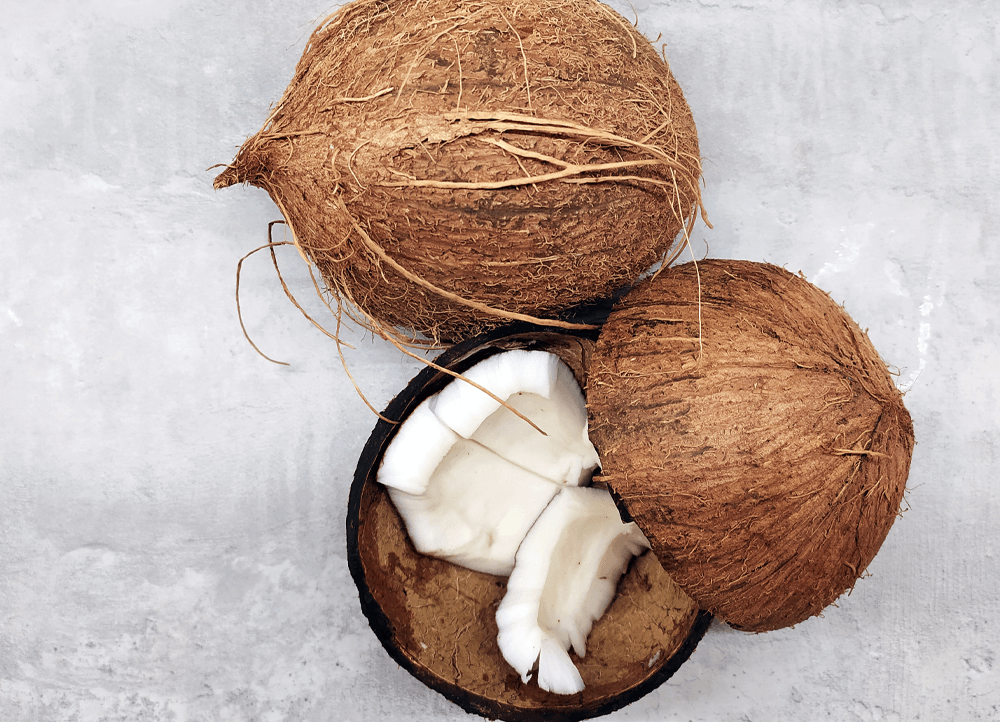
Unfortunately, as the world demands more coconuts for their oil and flesh, coconut farming contributes to deforestation in some Asian countries affecting its sustainability credentials.
Rapeseed Wax
Rapeseed wax is made from the rape plant and is produced by extracting the oil from the plant to make wax. Rapeseed is a popular cooking oil too and the crops are produced in Europe and the UK.
Unlike other vegan waxes, farming practices for producing rapeseed are more sustainable and the impact on the environment less severe. The wax produced from rapeseed holds scent and dye well and has a good burn time.
This is an increasingly popular vegan wax as it has similar properties to beeswax, without the animal labour factor.
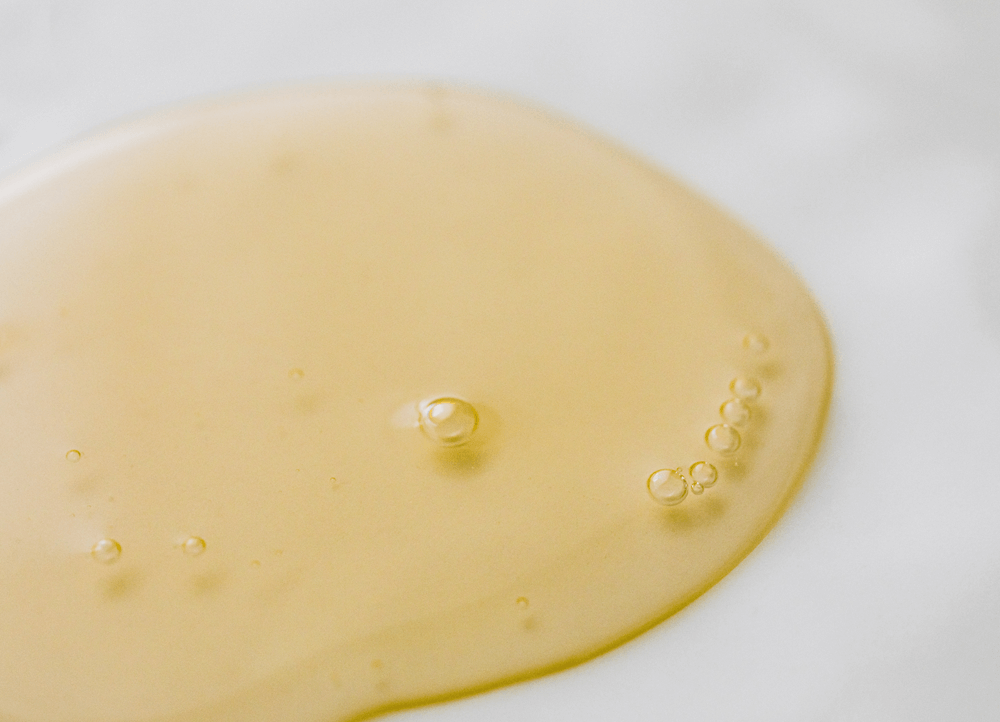
Paraffin Wax
Whilst this wouldn’t be classed as a natural product, in that it is a by-product of manufacturing processes, pure paraffin wax does not have any animal products in it.
It is made from petroleum and technically it is vegan. The chemicals in paraffin wax, when combined with oxygen when burnt, produce more carbon dioxide than vegetable and natural waxes such as soy, palm or coconut.
Paraffin candles burn well, take scent and easily but often animal stearin is added to improve their hardness, making some paraffin wax candles not vegan friendly.
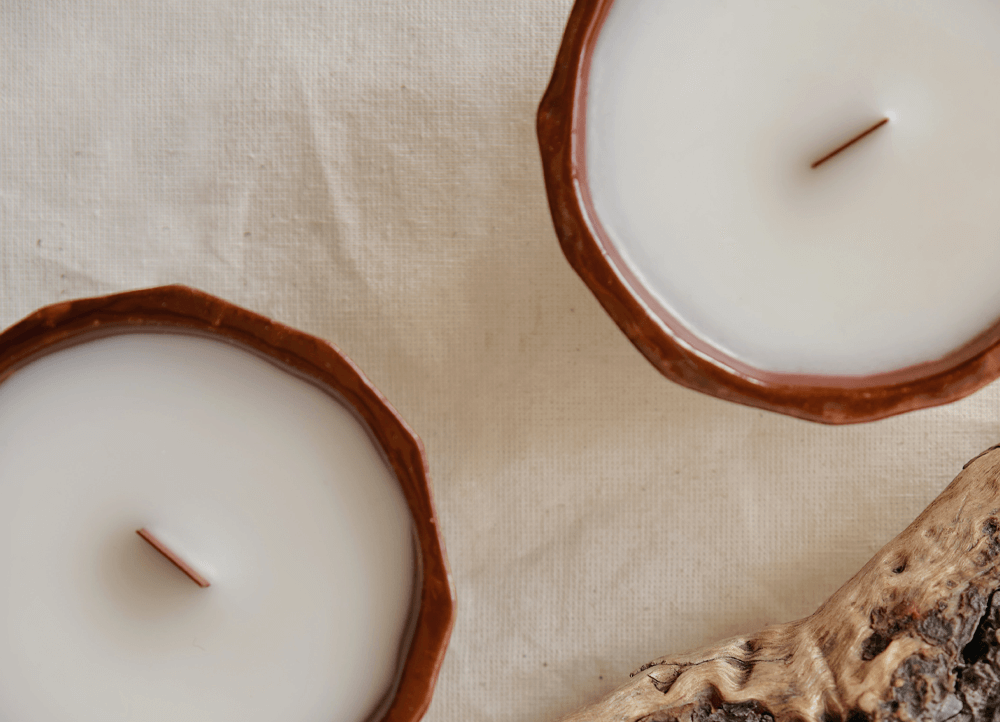
Vegan Candle Wicks
Vegan candles should always be labelled as such and should use a vegan wick inside the chosen vegan wax or wax blend. Wicks can be made from cotton, hemp, metal or wood. Wooden wicks have a wonderful crackle to them when burnt. Find out how to trim a candle wick to help you achieve the best candle experience.
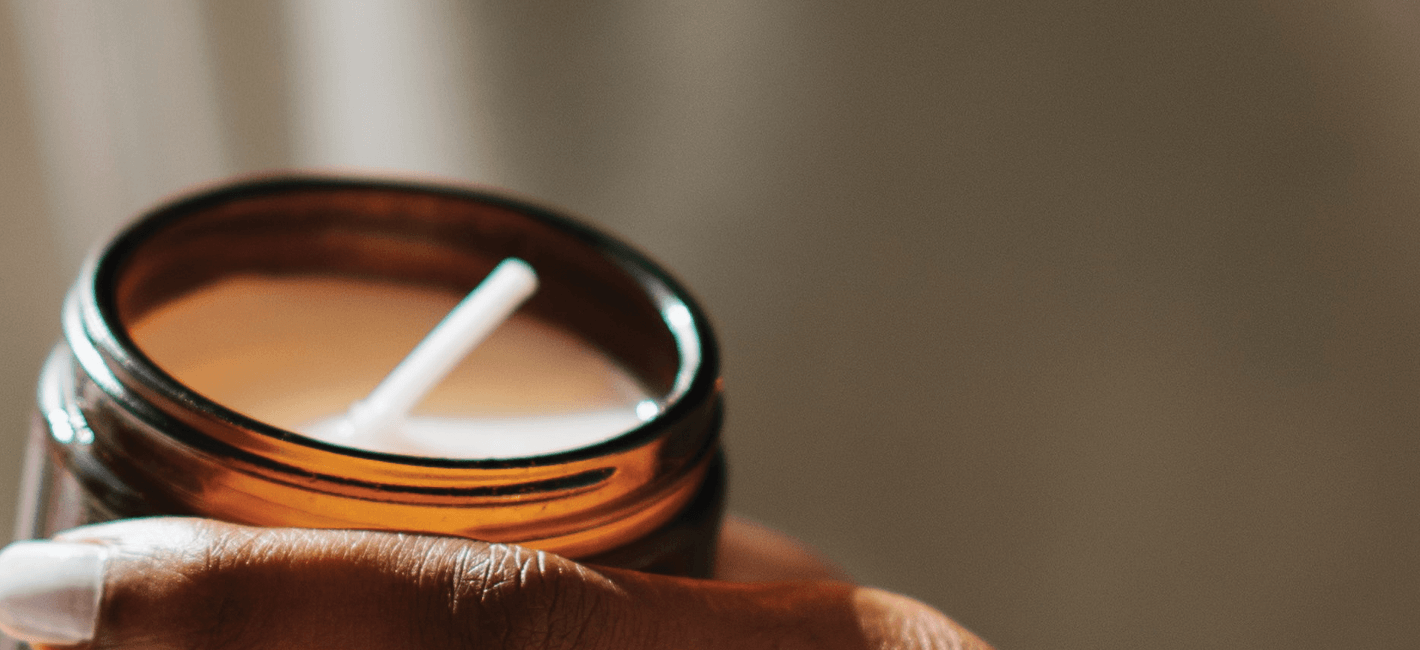
100% Vegan Candles
Burning anything will release particles into the air, but the benefits of using natural wax candles is that there are fewer nasty chemicals given off.
Paraffin candles create carbon dioxide when burnt, albeit in small amounts that have been shown not to be harmful and are not toxic to use in a well ventilated space. However, natural candle wax gives off less chemicals and soot and can be a safer alternative for burning in the home.
It is always worth checking the ingredients and labelling of your candle products. Some candle manufacturers mix additives and chemicals to their candles and unlike food quality legislation, the candle making industry is nowhere near as closely regulated.
See our latest Candle FAQ for more information on how to maintain your candles, how to fix candle tunneling & find out which types of wax make dog friendly candles.
